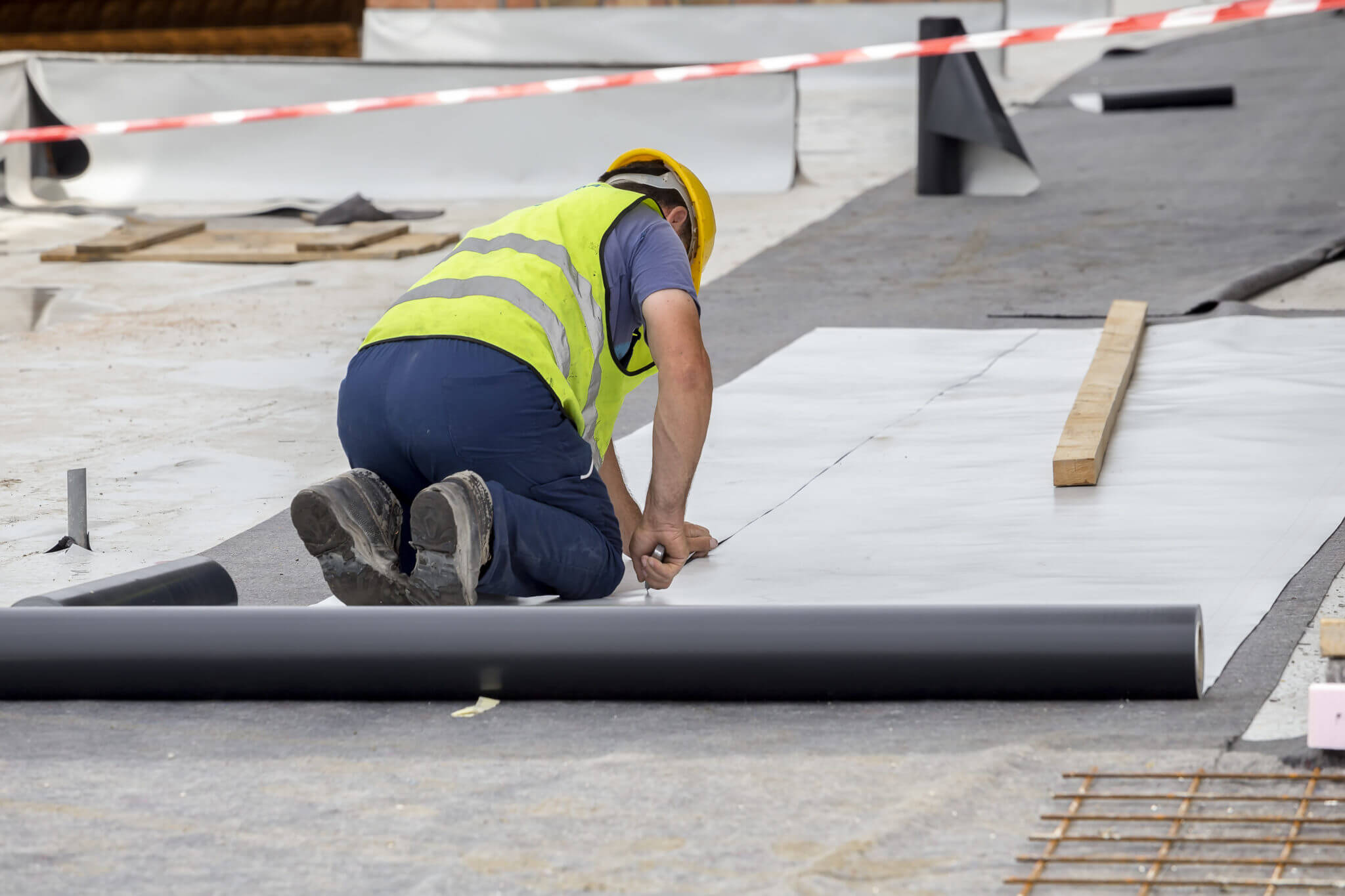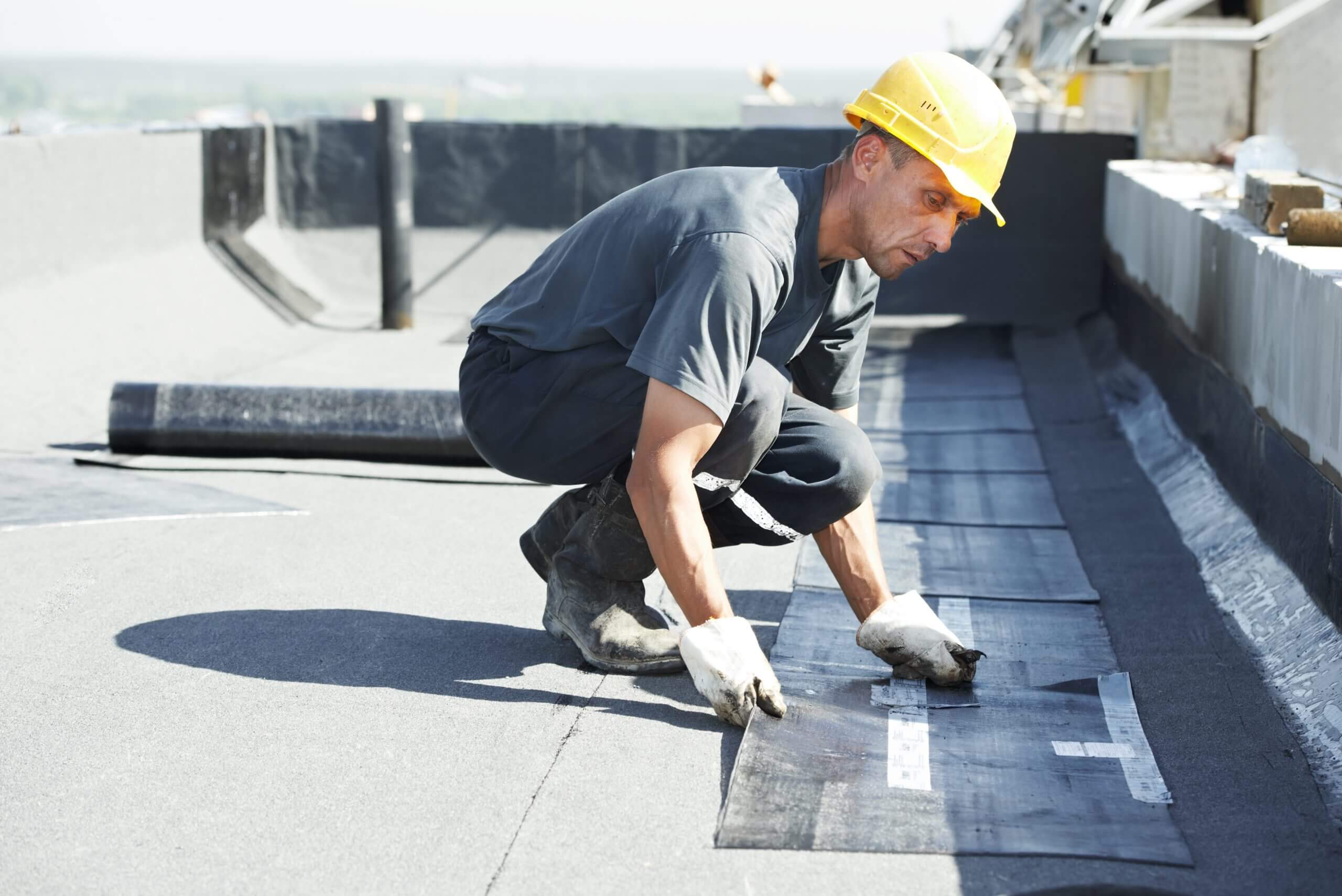Commercial Roofing Systems: A Complete Guide
May 29, 2023Commercial roofing systems differ significantly from residential roofs, primarily in design and slope. The size of a building plays a crucial role in determining the appropriate roofing style for residential and commercial structures. This article explores the differences between residential and commercial roofs, the importance of modern technology in commercial roof materials, considerations for selecting an industrial roof system, and various types of commercial roofing to consider.
Residential vs. Commercial Roofs
Residential roofs are typically smaller in size and feature steeper slopes that are visible from below. Common materials used in residential roofing include architectural tiles, asphalt shingles, and slate. On the other hand, commercial buildings often have flat or slightly pitched roofs that cannot be seen from below due to size limitations. The materials used for commercial roofs depend on various factors such as building structure, climate conditions, and foot traffic levels.
The Role of Modern Technology in Commercial Roofing
Commercial roofing contractors stay updated with the latest advances in roofing technology to provide optimal solutions for individual projects. Recent innovations in commercial roofing systems offer superior thermal regulation properties, reducing heating and cooling costs and stormwater runoff. These technological advancements enhance the efficiency and durability of commercial roofs.
Considerations for Selecting an Industrial Roof System
When choosing a commercial roofing systems for your business, it’s essential to consider the type of business and its specific requirements. Different enterprises may require unique approaches when planning roofing systems. Understanding the various commercial roofing systems available is vital to making an informed decision.
Types of Commercial Roofing Systems
Commercial roofing systems must account for the slope of the roof, which you can categorize into low-slope tops (such as flat roofs) or steep-slope roofs.
- Low-Slope Roofs: Commonly found in warehouses, shopping centers, and big box stores, low-slope roofs can be constructed using materials such as EPDM rubber membrane or PVC plastic membrane linings.
- Steep Slope Roofs: Often seen in residential properties, including single-family homes and multi-unit complexes, steep slope roofs can be covered with metal, slate, or tile.

Commercial Roof Types for Consideration
When it comes to selecting the optimal roofing system for your commercial business, understanding the slope of your roof is crucial. Once you have that information, you can consider various commercial roof types. Here are some popular options:
Commercial Single Ply Roof System (SPRCW)
Building owners commonly choose TPO, PVC, and EPDM roof systems for their flexibility and resilience against peeling, cracking, and weathering. Single-ply roof systems are designed for single-layer installation. Contractors categorize them into two subcategories: thermoplastic membranes and thermoset membranes.
TPO (Thermoplastic Polyolefin)
TPO roofing material is frequently used on low-slope roofs across North America. It consists of reinforced seam roof sheets that are heat welded, offering high reflectivity. TPO membranes are composed of polypropylene with an ethylene-propylene mix. They come in various colors, with white, gray, and tan being the most popular choices. Installation methods range from mechanical attachment to adhesion for this type of membrane.
PVC (Polyvinyl Chloride)
PVC roofing has two layers: PVC on top and polyester scrim underneath. The top ply contains additives for UV resistance, while the darker-colored underply facilitates easier installation with plasticizers. PVC membranes are known for their resilience and fireproof properties. They can be welded to adjacent sheets to create watertight seals. Additionally, used PVC membranes can be recycled and reused to produce new sheets.
EPDM Roofing (Ethylene Propylene Diene Monomer)
Roofing contractors regard EPDM roofing for its reliable protection against water and its elastic nature. The composition of this roofing material is a harsh chemical compound that provide durability and elasticity, making it resistant to the sun’s harmful rays, rainwater seepage, and leaks. EPDM rubber roofs have gained popularity due to their cost-effectiveness and strength. The synthetic rubber used in EPDM is derived from natural gas or oils. Roof contractors use EPDM roofing membranes on low-slope buildings worldwide.
Modified Bitumen Roof Systems
Modified bitumen roofing combines asphalt with heat and temperature-resistant chemical polymer. Roof contractors install this flexible and resistant roof material under hot and cold temperatures using various methods such as mopping, cold application, or torch application adhesives. Fabric seams are fused using heat, creating a solid bond that protects against hailstones, wind gusts, and fire hazards.
Built-Up Roof Systems
Built-up roofing (BUR), also known as built-up roofs, has been a popular choice for over a century. These systems have three to five layers, providing enhanced protection in extreme climate conditions with significant temperature swings. BUR roofs offer durability and longevity, making them a reliable option for commercial buildings.
Steel Roofs on Commercial Buildings – Aerial View
Steel roofs are famous for commercial buildings due to their durability, aesthetic appeal, and long lifespan. These roofs are suitable for steep and low-slope environments, offering a combination of aesthetics and longevity that adds value to any structure.
Liquid Applied Roof Systems
Liquid-applied roof membranes, created using resin and reinforcing polyester, provide a solution for reaching difficult areas. Roofing contractors typically apply these membranes using spraying or rolling techniques in two layers for optimal results. The advantage of liquid-applied systems is that they do not disrupt business operations or produce strong odors during construction, making them ideal for businesses that need to remain open.
Roof Coating Systems
Roof coatings, applied through a fluid application, offer protection and performance enhancements. Acrylic and silicone coatings are commonly used, with acrylic coatings helping reduce energy usage and providing leak prevention and increased longevity for metal roofs. When purchasing a commercial property, considering roof coatings is essential to ensure energy efficiency, leak prevention, and extended roof life.
Steep Slope Roofing Systems
Commercial buildings with a slope of 3:12 or higher are suitable for steep slope roofing systems, commonly found in hotels or universities. The slope of a roof determines the materials you can use, which may include asphalt composition roll shingles, fiberglass 3-tab architectural shingles, specialty asphalt shingles, or wood shakes.
Insulation and Cover Boards
To maximize energy efficiency and reduce utility bills, thermal insulation, and cover boards play a vital role. During roof replacement, incorporating insulation and cover boards allows one to comply with current energy codes and improve the building’s overall energy efficiency.

Schedule Your FREE Estimate
Elevate your business with sturdy and reliable commercial roofing systems installed by the experts at Roofing co. Our team of experienced professionals is ready to take on any commercial roofing project, delivering unmatched quality and exceptional craftsmanship.
As a trusted leader in the industry, we understand the importance of a robust and weather-resistant roof for your business. Whether you need a new roof installation, roof replacement, or repairs, we have the knowledge and expertise to finish the job right the first time.
Services We Offer
Roofing co. can install any roof with great pride and care, no matter what style or type you prefer.
- Roof Replacement
- Roof Repair
- Cost-Effective Roof Installation
- Roof Inspection
Roofing Co roofing system:
At Roofing co. we understand that roofing services can be a significant investment, which is why we offer competitive pricing and financing options to help make our services more accessible to our customers. Contact us today!

